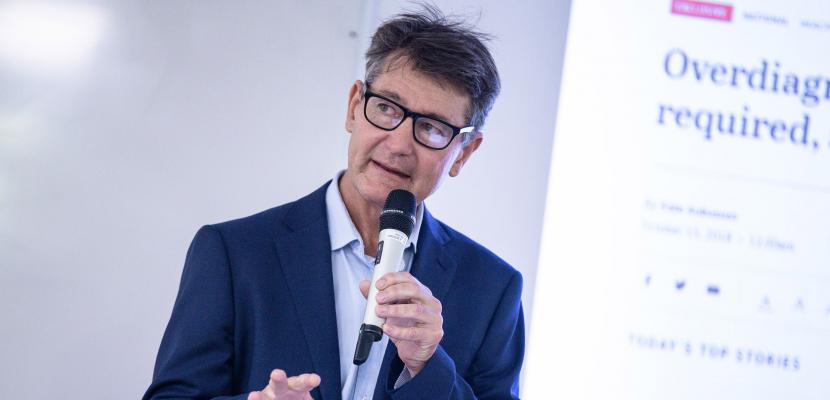
World-first research has revealed extensive financial links between the leaders of influential US professional medical associations and the pharmaceutical and medical device industries, raising concerns over independence and integrity.
The study of publicly-available payment data, published recently by the British Medical Journal (BMJ) shows up to 80 per cent of the US-based medical doctors leading professional medical associations have financial relationships with drug or device companies.
The study’s lead researcher, Dr Ray Moynihan from Bond University’s Institute for Evidence-Based Healthcare, said the research added weight to calls for policy reform.
“I was surprised by the extent of the money flowing to these medical leaders, overall $130 million US dollars flowing to around 300 leaders over a roughly five-year period, it’s an enormous amount of money and an enormous amount of influence.
“For the areas where we did find big flows of money, this is very worrying. You’ve got the leaders of the professional medical association in cancer receiving very large amounts of money, millions of dollars collectively.
"As we know from the evidence, extensive ties between industry and doctors can undermine the integrity of scientific research, medical education and clinical practice – including the drugs doctors prescribe.
"There’s a real need for much more independence among this medical leadership.”
However, Dr Moynihan stressed there were large variations between the medical associations.
“For some groups like the cardiologists or the cancer specialists, their leaders were receiving very large payments. For leaders of other groups, like the psychiatrists, it was almost nothing.”
For the period the study examined, the largest research payments flowed to the leaders of the American Society of Clinical Oncology ($54m), and the American College of Cardiology ($21m).
The largest general payments – including fees for consultancy, speaking, royalties and hospitality – went to leaders of the North American Spine Society ($9.5m), and the Orthopaedic Trauma Association ($4.7m).
These medical associations and societies are influential in areas of research, education, and practice, including guideline development.
The research team spoke to peers in disease areas including heart disease, mental disorders, diabetes, osteoarthritis, cancer, chronic lung disease and asthma, back problems and infectious diseases, to identify the key medical associations run by doctors.
They used publicly-available documents to identify members of the boards or governing councils of those organisations, then searched the United States government’s Open Payments database to uncover details of those leaders’ financial relationships with companies making drugs and medical devices.
Of the 328 leaders they examined, 235 or 72 per cent had financial ties to the medical industry. Among 293 leaders who were medical doctors or doctors of osteopathy, 235 or 80 per cent, had ties.
Dr Moynihan said there was a growing view that the leaders of medical associations should be free of financial relationships with the wider medical industry.
“These powerful doctors’ groups have enormous influence in the US and globally, including over the definitions of disease, which determine who’s healthy and who’s sick.
"It’s basic common sense that these leaders should be free from financial ties to companies which stand to gain enormously from the work of these medical associations,” he said.
An accompanying editorial in today’s BMJ calls for each association to review its processes to ensure it was led by a balanced and diverse group of physician leaders, free from financial conflicts of interest.
Dr Moynihan, an assistant professor at Bond, said the research also showed Australia had fallen way behind in the transparency stakes, underlining the need for a US-style Open Payments system in Australia.
“We could not do this study in Australia in the same way, we do not have the mandated government-run open payments system that would allow us to investigate these sorts of ties.
"We do have a system in Australia, but it’s a self-regulatory system run by the pharmaceutical industry itself, it’s nowhere near as comprehensive and it’s certainly not grounded in legislation the way the American system is.”